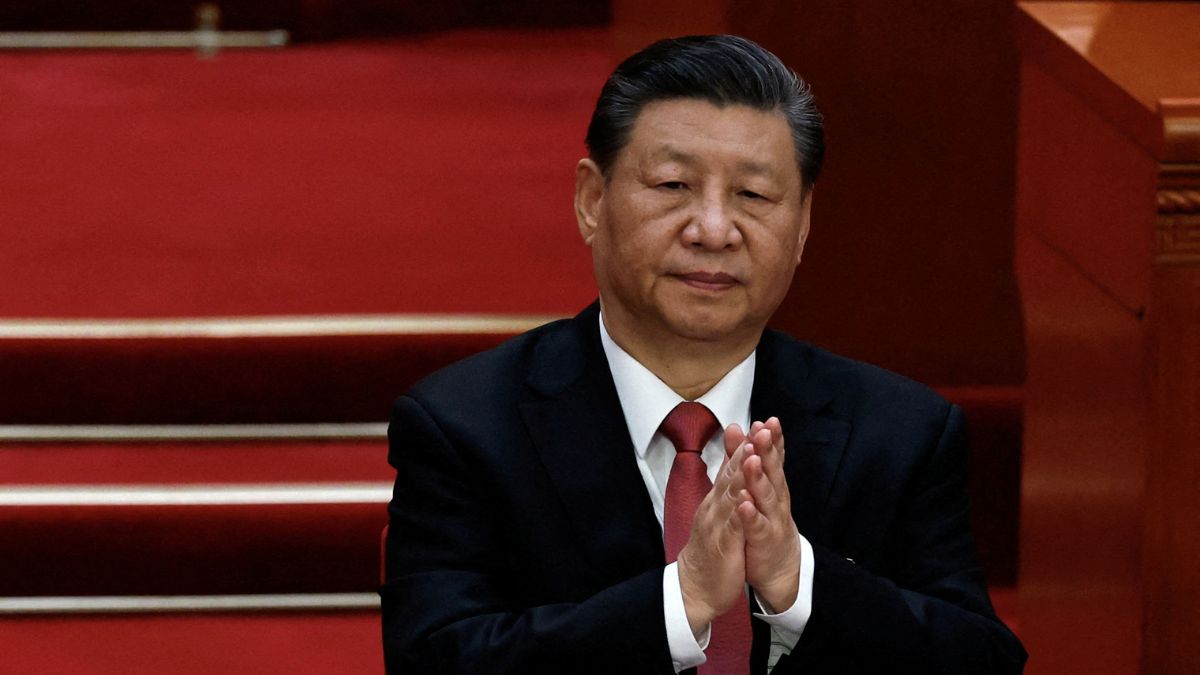The recent disappearance of prominent economist Zhu Hengpeng has sent shockwaves through China’s academic and political spheres. Detained and removed from his positions at the Chinese Academy of Social Sciences (CASS), Zhu’s vanishing shows the Chinese Communist Party’s escalating efforts to silence dissent. Allegations suggest that he criticised President Xi Jinping’s handling of the economy in a private WeChat group. This act has triggered a renewed crackdown on voices challenging the party’s narrative, especially amid worsening economic conditions, including a declining real estate market and faltering consumer confidence. As Zhu’s fate remains uncertain, his case illustrates the government’s increasingly aggressive stance in stifling criticism and controlling the narrative around its economic struggles.
According to a Wall Street Journal report, Zhu’s comments reportedly included veiled criticisms of Xi and even allusions to his mortality. Under Xi’s leadership, the party has tightened its grip on dissent, with many critics facing detention, exile or worse.
Zhu Hengpeng, who specialised in health economics for over two decades at CASS, became a well-known commentator and was appointed deputy director of the CASS Institute of Economics in 2014. He also served as an independent director at the state-owned China Meheco Group from 2013 to 2015. Before his disappearance, Zhu was Deputy Director and Professor of the Institute of Economics at CASS, as well as Director of the Public Policy Research Center at the same institution.
CASS and the campaign for compliance
Zhu’s investigation coincided with a broader campaign at CASS to enforce adherence to Communist Party rules. As part of this effort, leaders were required to sign pledges on discipline and comply with the “10 prohibitions”, which ban various activities, including unauthorised collaborations with foreign entities.
Impact Shorts
More ShortsZhu’s last public appearance was in late April, at a conference on elder care, where he proposed funding China’s pension system by having young people contribute to their parents’ pensions and issuing more government bonds. His comments sparked controversy on social media, with many criticising the proposal as an added burden on younger generations already facing high living costs and limited job opportunities.
Even before his alleged criticism of Xi’s management of the world’s second-largest economy on WeChat, Zhu was not entirely supportive of the government’s economic policies. In an article originally published in Jingjixue Dongtai (Economic Perspectives), and later translated into English as The Role of Social Security in China’s New Development Pattern, Zhu critiqued China’s social security policies.
Critique of China’s economic landscape
Zhu’s economic analysis was a direct critique of China’s current policies, particularly in taxation and social security. He highlighted how the country’s heavy tax burden and flawed social security structure inhibit the growth of residents’ consumption levels. Drawing on international examples, he argued that sustainable economic growth requires a robust social security system alongside significant public spending to reduce income inequality, alleviate public anxieties and expand the middle-income demographic—steps essential for boosting consumer demand.
Zhu contrasted China’s approach with countries like Norway, where high social security benefits are sustained by higher taxes. While this can suppress consumption due to reduced disposable income, he noted that the US, with lower taxes and fewer welfare provisions, sees a higher proportion of consumption relative to national income. In his critique, Zhu pointed out that China’s macro tax burden was substantial, yet its social security expenditures amounted to only 11.8 per cent of GDP in 2019—a stark contrast to OECD countries, where social security spending is significantly higher.
He also criticised the uneven distribution of benefits, which disproportionately favoured urban workers over rural residents. This disparity resulted in significant gaps in pensions and medical reimbursements, with government employees enjoying far more generous benefits than their rural counterparts. Although Zhu’s article did not directly name Xi, it implicitly questioned his administration’s approach, suggesting the need for substantial reforms to China’s taxation and social security frameworks to foster more equitable wealth distribution and stimulate consumption.
It is highly likely that those loyal to President Xi did not take kindly to such analysis when it was published.
Enforced disappearances in China
Zhu’s disappearance is just the latest in a growing series of suspicious vanishments involving critical voices in China. This tactic of enforced disappearance has become a hallmark of President Xi’s government, instilling fear across the population. According to a Chinese Human Rights Defenders report titled Hundreds Forcibly Disappeared in China, authorities have increasingly used disappearances to silence dissenters both online and in public spaces. As of August 2024, the UN had documented 168 unresolved cases of enforced disappearances in China, with at least 30 dissidents having disappeared since 2019. The Chinese Human Rights Defenders documented 33 active cases of forced disappearances, nine of which occurred in 2024 alone, including three involving women.0
Under international law, enforced disappearances are defined as the arrest, detention or abduction by state agents or their proxies, followed by a refusal to acknowledge the deprivation of liberty or the concealment of the person’s fate or whereabouts. This practice places victims outside the protection of the law, leaving them vulnerable to torture and ill-treatment. Such actions can constitute a crime against humanity when they form part of a systematic attack on civilians. The UN Secretary-General has described enforced disappearances as a state “strategy to spread terror within society.”
As Zhu Hengpeng’s fate hangs in the balance, his case serves as a sobering reminder of the Chinese government’s increasing repressive measures. The disappearance of intellectuals like Zhu signals an environment where even private dissent can have severe consequences, illustrating the lengths to which the state will go to protect its control over both the economy and public discourse.


)

)
)
)
)
)
)
)
)



